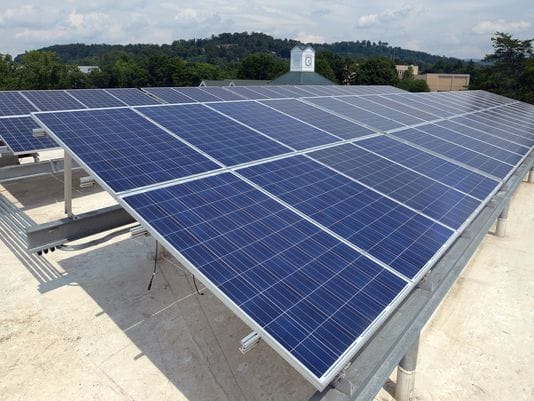NC’s rise in solar power must accelerate
NC’s rise in solar power must accelerate
Last week was a big week for solar power in North Carolina. On Monday, Duke Energy announced that it plans to invest $500 million in solar power to meet state requirements for more power from renewable sources. On Thursday, U.S. Secretary of Agriculture Tom Vilsack visited a Bunn solar farm to announce that the USDA is making $55 million available in grants and loan guarantees to support 22 North Carolina solar and other renewable energy projects.
The surge in solar power investment highlights how quickly solar and other renewable power sources are developing from marginal to central sources for generating electricity. This is good news for controlling climate change, reducing pollution and ultimately lowering the cost of electricity. The USDA program, for instance, will make it possible for farms and small communities to provide their own power and create jobs in the process.
“It’s nothing short of amazing, and it's happening all across America. And it’s an exciting new future,” Vilsack said.
And one of the places in America where it’s happening the most is in North Carolina. North Carolina ranks No. 4 in the country in installed solar capacity, enough solar energy to power 68,300 homes, according to the Solar Energy Industries Association.
The state’s solar capacity will get a big boost from Duke Energy’s investment. The Charlotte-based utility will build three solar power facilities and buy power from five other facilities built by investors. The solar expansion will help Duke Energy meet state requirements that 6 percent of its 2015 sales come from renewable energy sources.
The growth in solar power is especially welcome given the rising worry about climate change. Earlier this month, the World Meteorological Organization warned that the amount of greenhouse gases in the atmosphere reached a record high in 2013. Meanwhile, the group said, the globally averaged temperature for August 2014 was the highest for August since record keeping began.
Despite worldwide efforts to cut greenhouse gas emissions, the hazard is growing. The WMO said the concentration of carbon dioxide in the atmosphere increased last year at the fastest rate in nearly 30 years. “We must reverse this trend by cutting emissions of CO2 and other greenhouse gases across the board,” said WMO Secretary-General Michel Jarraud. “We are running out of time.”
The efforts by Duke Energy and the initiatives from the USDA should be applauded. They are taking the state and nation and ultimately the world in the right direction. But the progress, however notable, is not enough. Utilities, and especially Duke Energy, the nation’s largest electric utility, must have a greater sense of urgency. Keeping up with state renewable energy mandates is not sufficient. Utilities must press toward making renewable energy the dominant source of electric power.
An accelerated transition from fossil fuels to solar, wind, biomass and other forms of renewable energy isn’t only important for climate control. It’s important for utilities themselves. Those that fail to stay in front of the revolution in technology that is making renewable energy affordable on a grand scale could see their financial model crumble. If investors flee utilities, the power grid could be put in jeopardy.
That scenario is already unfolding in Germany. The New York Times reported last Sunday that Germany will soon be getting 30 percent of its power from renewable energy sources, primarily from solar power and arrays of wind turbines in the North Sea. Meanwhile, California is on its way toward a goal of 33 percent renewable power by 2020. The growth has utilities worried that their monopoly on generating power is being evaporated by the sun and blown away by the wind.
As the Times put it, “Electric utility executives all over the world are watching nervously as technologies they once dismissed as irrelevant begin to threaten their long-established business plans. Fights are erupting across the United States over the future rules for renewable power.”
Atmospheric and climate trends show that the future must belong to renewable energy or the future will be bleak.
via NC’s rise in solar power must accelerate | Editorials | NewsObserver.com.
